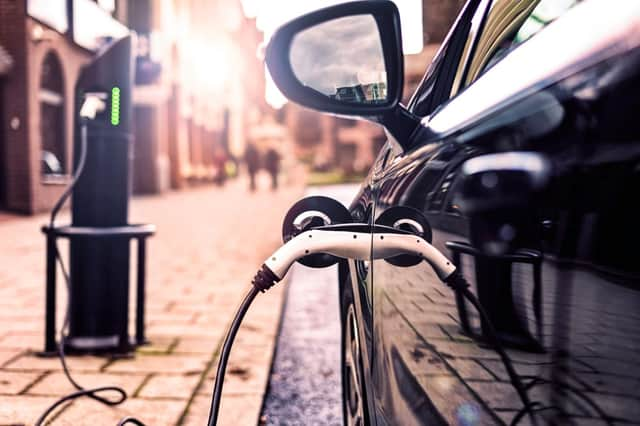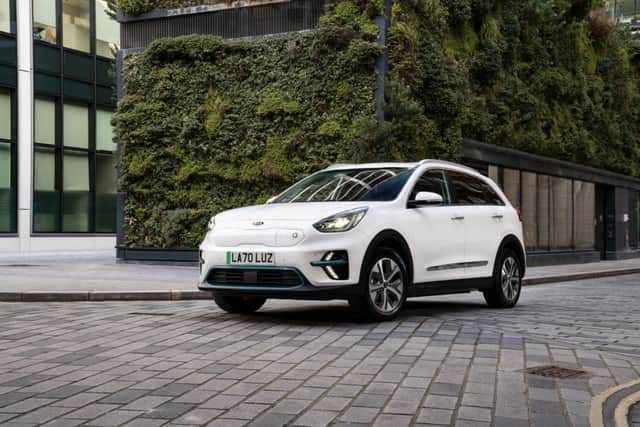Government cuts electric grant and excludes more expensive models


The Government is cutting the Plug-in Car Grant (PiCG) offered to buyers of new electric cars and lowering the upper price for eligible models.
Effective immediately, the changes see the grant offered by the Office for Zero Emission Vehicles cut from £3,000 to £2,500. They also mean the grant will only be available on cars priced below £35,000. Previously any car costing less than £50,000 was eligible.
Advertisement
Hide AdAdvertisement
Hide AdThe Department for Transport said the changes would help to “target less expensive models...allowing the scheme’s funding to go further”, adding: “Grants will no longer be available for higher-priced vehicles, typically bought by drivers who can afford to switch without a subsidy from taxpayers.”
However, industry observers have said it is the wrong move at the wrong time and threatens to hinder the Government’s own ambition to push motorists into electric vehicles ahead of the 2030 petrol and diesel ban.


Mike Hawes, chief executive of the Society of Motor Manufacturers and Traders (SMMT) said: “The decision to slash the Plug-in Car Grant and Van and Truck Grant is the wrong move at the wrong time.
“New battery electric technology is more expensive than conventional engines and incentives are essential in making these vehicles affordable to the customer. Cutting the grant and eligibility moves the UK even further behind other markets.”
Advertisement
Hide AdAdvertisement
Hide AdLast March the grant was cut from £3,500 and the £50,000 cap introduced to make the funding go further. The latest changes are aimed at ensuring the funding is sufficient to keep the scheme going until 2022-23 as more people take advantage of the grant. The DfT claims that since 2019 the number of sub-£35,000 EVs has risen by “almost 50 per cent”.
Transport Minister Rachel Maclean said: “The increasing choice of new vehicles, growing demand from customers and rapidly rising number of chargepoints mean that, while the level of funding remains as high as ever, given soaring demand, we are refocusing our vehicle grants on the more affordable zero emission vehicles – where most consumers will be looking.”
RAC head of roads policy Nicholas Lyes said: “Ministers seem to talk the talk when it comes to encouraging people into cleaner vehicles, but cutting the plug-in car grant certainly isn’t walking the walk. While it’s understandable to focus grants on the affordable end of the market incentives to get consumers to go green remain vital in encouraging the sale of clean new cars.
“Even though more models are coming on to the market, our research suggests upfront cost remains a concern to drivers. By cutting the grant, the Government may risk people holding on to their older, more polluting vehicles for longer.”
Advertisement
Hide AdAdvertisement
Hide AdJim Holder, editorial director, What Car?, said: “While there’s no question that interest in electric cars is booming, it’s evident from our data that far more people continue to research them than buy them, indicating a hesitancy to commit to a new technology that the Plug-in Car Grant was helping to overcome.
“In September last year, more than half of potential EV buyers told us the Plug-in Car Grant will influence their decision to purchase.
“There are wider implications, too: chopping the grant only widens the gap between EV and ICE prices and emphasises a worrying underlying perception that electric cars are the preserve of the wealthy. So too the removal of the grant threatens the already paper-thin profitability of selling EVs in the UK - with huge grants available in countries such as France and Germany manufacturers will likely focus supply to those countries, again throttling the transition to electrification in the UK.
“While it was inevitable the carrot of the grant would whittle down over time and eventually be replaced by punitive measures, this feels too soon to take another step on that journey. ”
Advertisement
Hide AdAdvertisement
Hide AdFiona Howarth, CEO of Octopus Electric Vehicles called the move disappointing but emphasised that EVs still offered motorists other savings. She said: "All is not lost - drivers can still save 30 - 40 per cent on their electric car every month through the salary sacrifice scheme - enabled by the low company car tax rates the government has committed to for the next 4 years. It may not be as well-known as the grant, but potentially much more valuable - with some drivers saving £20,000 over three years.”